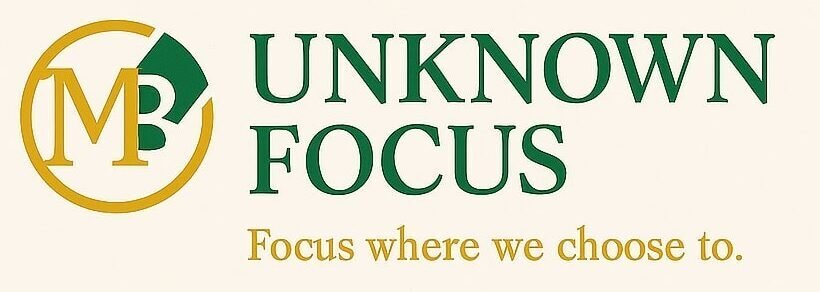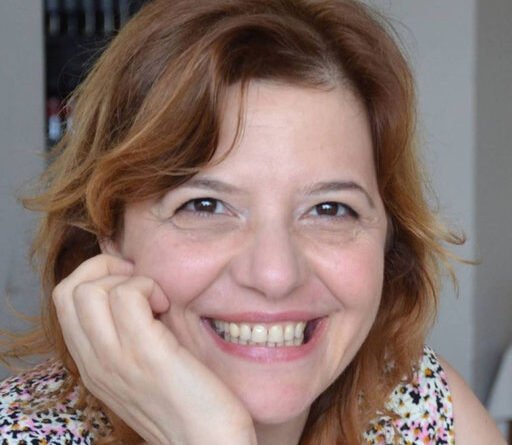Professor Rosa Angela Fabio on the Strength of Intellectual Humility
Messina, the lively gateway to the soul of Sicily, is a city where the sun shines for more than 300 days a year. This city was further enriched by the founding of the University of Messina in 1548, a Mediterranean institution with a focus on internationalization, innovation, and research. From this very faculty emerged the study of Professor Rosa Angela Fabio: “Thinking with Humility: Investigating the Role of Intellectual Humility in Critical Reasoning Performance.” The results of the study, as stated, demonstrate the importance of intellectual humility in fostering effective critical thinking, highlighting its potential role in improving cognitive flexibility and openness to new evidence, especially in different problem-solving contexts.
When asked what she would like to achieve with this study, as well as whether these studies are being used sufficiently in practice, Professor Angela Fabio said: “With this study, my colleague Rossella Suriano and I aimed to demonstrate that intellectual humility-the ability to recognize one’s cognitive limitations and remain open to new evidence-is not only a moral or interpersonal trait, but also a powerful cognitive asset. We showed that students high in intellectual humility perform significantly better in the most demanding phases of critical thinking: evaluation, inference, and self-monitoring. This means they are more capable of revising their beliefs, resisting biases, and reflecting on their reasoning—skills that are crucial in academic, professional, and civic life.”
“Critical thinking will not flourish unless we also cultivate the mindset that sustains it.”
Professor Fabio noted for Unknown Focus that, unfortunately, studies like this are still underused in practice. “Intellectual virtues such as humility are often treated as abstract ideals, when in fact they are teachable and measurable competencies with real effects on how people think and act. Educational systems rarely train students to think with humility, despite mounting evidence that doing so enhances open-mindedness, reduces dogmatism, and supports democratic dialogue. This kind of research can lead to real-world results if integrated into teacher training, curriculum design, and even professional development programs. Encouraging individuals to question their own assumptions and engage in deeper self-monitoring has implications for conflict resolution, scientific literacy, and mental resilience. To make this possible, we need the support of educational institutions, policymakers, and public agencies that understand the urgent need to invest in cognitive and character education. Critical thinking will not flourish unless we also cultivate the mindset that sustains it-and intellectual humility may be its most fertile ground,” she said.
“We’re more aware of the importance of critical thinking, and more intentional in designing educational contexts that support it. But we still need to move beyond implicit assumptions and embed critical thinking more clearly across disciplines-making it a visible, teachable, and assessable component of university education.”
Do you think that critical thinking is sufficiently present in science today, and is it adequately encouraged among students in Europe? Have you noticed any changes in this regard between when you were a student and now? What has improved, and what still needs work?
Professor Fabio: Yes, I believe that critical thinking is receiving more attention today than it did in the past, particularly over the last five years. This growing focus is likely due to the increasing complexity of the information landscape we all live and work in. Cognitive overload is now a widespread condition: when individuals are exposed to more information than they can process, their capacity for critical thinking and deliberate decision-making is compromised. The idea of cognitive overload is not new (Sweller, 1988), but the rise of digital media has greatly amplified the phenomenon. The overabundance of information can create confusion, stress, and even reduce relational agency-that is, our ability to act intentionally and reflectively within social contexts.
Cognitive load theory distinguishes between intrinsic load (the effort required to complete a task), extraneous load (the effort imposed by the environment), and novelty-related load (the effort needed to make sense of new information). All three types are affected by our emotional and contextual conditions, such as fatigue, stress, environmental complexity, or multitasking. When these loads are too high, our attention spans shrink and our working memory becomes overwhelmed. These conditions make it harder to foster critical thinking—especially if we assume it will develop spontaneously.
As a student years ago, I rarely encountered courses that explicitly focused on critical thinking. Today, I see more structured initiatives. For example, the Erasmus+ CRITHINKEDU project brought together over 70 universities from 9 European countries to examine how critical thinking is taught and assessed in higher education. Many institutions have since incorporated it more systematically, particularly within liberal arts and interdisciplinary programs. So yes, things are improving. We’re more aware of the importance of critical thinking, and more intentional in designing educational contexts that support it. But we still need to move beyond implicit assumptions and embed critical thinking more clearly across disciplines—making it a visible, teachable, and assessable component of university education.
“Intellectual humility is not just a personal trait-it is a structural safeguard. It helps create an academic culture where challenging ideas is acceptable, where careers are not solely determined by who one knows or how well one aligns. It fosters a community where knowledge is advanced through questioning, not rewarded by conformity.”
Academic freedom is increasingly being discussed, including by politicians. In your opinion, how important is intellectual humility for protecting and sustaining academic freedom?
Professor Fabio: Many factors shape how academic freedom actually functions in daily life: institutional politics, nepotism, hierarchical pressures, and the social rewards for conformism. Often, early-career researchers learn quickly that conformity is rewarded-positions, grants, or invitations come to those who operate within accepted boundaries. Those who challenge orthodoxy risk marginalization or career stagnation.
In that context, intellectual humility becomes a crucial virtue. It involves recognizing the limits of one’s own knowledge, being open to opposing viewpoints, acknowledging one’s fallibility, and moderating defensiveness when challenged. This virtue not only supports better inquiry and learning-fostering empathy, openness, and more accurate self-assessment, but also helps protect academic freedom itself. Here’s how: intellectual humility allows scholars to pursue research that might go against prevailing consensus without assuming they already hold the full truth. It encourages collaboration and dialogue rather than dogmatism. It reduces the impetus for self-censorship when researchers realize that questioning established views does not reflect arrogance, but a genuine commitment to truth-seeking.
When humility is practiced institutionally, as an expectation of how scholars treat ideas and each other, it can help mitigate the corrosive effects of nepotism, power dynamics, or ideological gatekeeping. In contrast, environments dominated by intellectual arrogance or conformity breed fear: academics self-center or align their research agendas with prevailing norms rather than challenge them. This stifles the very freedom academic institutions are meant to uphold.
In short, intellectual humility is not just a personal trait-it is a structural safeguard. It helps create an academic culture where challenging ideas is acceptable, where careers are not solely determined by who one knows or how well one aligns. It fosters a community where knowledge is advanced through questioning, not rewarded by conformity.
“Many politicians often need to present themselves as assertive and confident to maintain public trust and leadership. This sometimes leads to a more rigid stance, as admitting uncertainty can be seen as a weakness in the political arena.”
Who do you think demonstrates more intellectual humility, politicians or scientists?
Professor Fabio: It’s hard to generalize definitively about whether politicians or scientists demonstrate more intellectual humility, as it varies widely within both groups. However, I would say that scientists, by the nature of their work, tend to have a deeper awareness that science is always evolving and subject to revision. They understand that knowledge is provisional, hypotheses can be disproven, and errors are part of the process.
On the other hand, many politicians often need to present themselves as assertive and confident to maintain public trust and leadership. This sometimes leads to a more rigid stance, as admitting uncertainty can be seen as a weakness in the political arena. That said, there are exceptions in both fields. Some politicians show great openness and humility, while some scientists can be overly dogmatic. But overall, the scientific mindset encourages recognizing fallibility as a fundamental part of progress, which is a key aspect of intellectual humility.
“Labeling someone immediately as “anti-science,” such as a parent who is afraid of vaccines, usually creates a barrier and shuts down communication. Instead, it’s important to approach these situations with empathy and intellectual humility.”
Sometimes, critical thinking is not enough; people simply refuse to change their beliefs. For example, pseudoscientific communities. Do you believe that combining intellectual humility with critical thinking and a degree of empathy could help address issues surrounding pseudoscience? For instance, when a parent is afraid of vaccines and refuses to vaccinate their child, could that fear serve as a signal to engage emotionally and help them become more open to receiving new, evidence-based information, instead of condemning and labeling them as anti-science?
Professor Fabio: I agree that critical thinking alone is often not enough to change deeply held beliefs, especially in cases involving pseudoscientific communities. Labeling someone immediately as “anti-science,” such as a parent who is afraid of vaccines, usually creates a barrier and shuts down communication. Instead, it’s important to approach these situations with empathy and intellectual humility. Fear, in these cases, can be a signal that emotional concerns need to be acknowledged before new evidence can be accepted. By engaging emotionally and respectfully, we create space for dialogue rather than confrontation. Adding clear, evidence-based information gradually and encouraging reflection, rather than condemnation, is more likely to foster openness and trust. Combining critical thinking with intellectual humility and empathy allows us to connect better with people’s fears and beliefs, helping to bridge gaps and promote understanding.
“Ultimately, AI should be an aid to human thinking, not a replacement for it.”
How can we prevent AI from becoming a substitute for critical thinking?
Professor Fabio: We can prevent AI from replacing critical thinking by actively cultivating these skills through education from an early age and continuing into adulthood. In a world flooded with information—from social media, advertising, and now AI-generated content—critical thinking allows individuals to question, evaluate, and make informed decisions rather than passively accepting information. Research shows that teaching people to slow down intuitive responses, confront misinformation, and reflect on evidence-based reasoning strengthens their ability to resist false claims (Sternberg & Halpern, 2020). Effective critical thinking education combines explicit instruction, real-world problem scenarios, and repeated practice across disciplines.
Moreover, we must not treat critical thinking as a generic skill but as a discipline-specific, cognitively demanding process that involves evaluating competing ideas, managing cognitive load, and using prior knowledge efficiently. If AI is to be a tool and not a crutch, education must emphasize the development of independent judgment—starting in childhood, when asking “why” should be encouraged rather than discouraged. Ultimately, AI should be an aid to human thinking, not a replacement for it. The goal is not to compete with AI but to think better because of it. Personally, I have also developed programs to help children build critical thinking skills—because these abilities must be nurtured from the very beginning.
“Our data from over 350 university students showed that critical thinking was positively associated with cooperation, emotional stability, and reduced dysfunctional beliefs.”
Which of your studies would you say did not receive the deserved attention?
Professor Fabio: One study that I believe has not yet received the attention it deserves is Critical Thinking as a Driver of Peace and Well-Being, conducted in collaboration with my colleague Chiara Ascone. Despite being rejected by three journals so far, I remain convinced of its relevance-especially in today’s world marked by polarization, war, disinformation, and mental health challenges.
The study explored how critical thinking not only supports rational decision-making but also promotes peaceful attitudes and psychological well-being. Our data from over 350 university students showed that critical thinking was positively associated with cooperation, emotional stability, and reduced dysfunctional beliefs. We argued that critical thinking, often viewed narrowly as a cognitive tool, also plays an important emotional and ethical role in conflict resolution and social harmony. Perhaps because it sits at the intersection of multiple fields-education, mental health, peace studies-it hasn’t found its place in any one disciplinary journal. But I believe its integrative approach is precisely what makes it so timely and important.
What stands out about Italians when it comes to critical thinking? Is there anything you find particularly appealing or sympathetic?
Professor Fabio: As an Italian myself, I think we have a natural talent for debating passionately-even if sometimes we mix logic with emotion. That said, I’m very cautious about generalizing. In my experience, individual differences outweigh national patterns. I’ve lived in several countries, and what stands out is not so much a national mindset but how environments either nurture or suppress independent thinking. In Italy, I’ve met brilliant, independent minds—students and colleagues capable of extraordinary insight and depth. But alongside these, I’ve also encountered what I call “boxed thinkers”: people who adopt pre-packaged opinions without questioning them. One major reason, I believe, is that critical thinking is still not systematically taught in our schools. This creates a paradox: a culture rich in intellectual potential, but sometimes held back by rigid traditions, conformism, and even nepotistic logics that are hard to uproot.
Still, one thing I truly value about Italian society is that we are, at least for now, free to express our opinions openly—even when they challenge mainstream narratives. This freedom of thought and expression, which is not granted in all countries, is a precious condition for critical thinking to survive and grow. So what I find both appealing and challenging is this contrast—between the vitality of thought that exists, and the need for deeper structural support to help it flourish.
“Learn to question yourself. Be humble. Listen to others’ ideas. Cultivate self-regulation. And above all, love science-not for what it gives you, but for the depth it adds to your understanding of the world.”
Which of your studies was the most difficult for you, and which was the most interesting-and why? What would you like people to know about your work, and what do you think those who are just entering the world of science and research should understand early on?
Professor Fabio: One of the most difficult areas for me has been publishing international research on themes related to peace. Despite the relevance and urgency of the topic, I often encountered resistance-perhaps because peace is still viewed as a value or an ideal, rather than as a scientific construct grounded in cognitive and behavioral mechanisms. That has been both surprising and disheartening at times. The most interesting work I’ve done is undoubtedly the book Relationship Between Automatic and Controlled Processes of Attention and Leading to Complex Thinking. It explores how automatic and controlled processes interact, and how the shift from controlled attention to automaticity is at the core of access to complex thinking.
What I tried to show is that automatic processes-usually overlooked or taken for granted-play a fundamental role in shaping how we reason, decide, and relate to others. If we gave more attention to how thought creates chunks of meaning, we could literally change how society functions. Wars and intolerance are often the result of two automatisms colliding, with no room for negotiation. But when people engage in controlled processes, they can reflect, change their minds, and open up to the perspectives of others.
I wish more people understood that the very principle that enables automatization is a survival mechanism-but paradoxically, it can also block our ability to connect. Two rigid automatisms cannot dialogue; two minds engaged in reflective, flexible thinking can. To young scientists, I would say: study, study, study. Learn to question yourself. Be humble. Listen to others’ ideas. Cultivate self-regulation. And above all, love science-not for what it gives you, but for the depth it adds to your understanding of the world.
Image: Professor Rosa Angela Fabio


